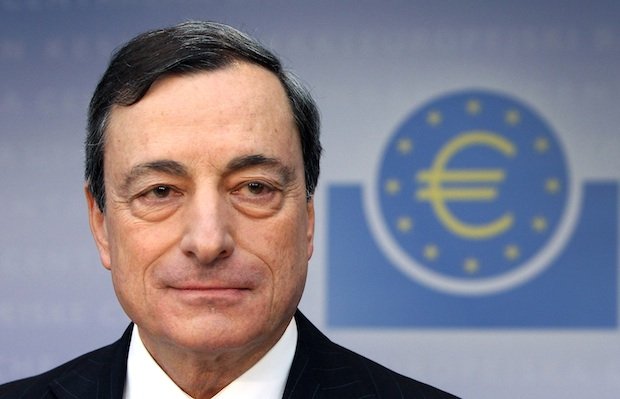Is QE finally on the way for the Eurozone?

A day after the European Central Bank (ECB) did what everyone thought it would do and didn't cut interest rates, Capital Economics thinks president Draghi knows he needs to act sooner rather than later, and that there's a good chance he will.
"We think the ECB has more work to do in 2014", says chief European economist, Jonathan Loynes.
But Steve Blitz, chief economist at ITG, says there wasn't much the bank could do anyway: "Can we now all agree that central banks cannot create inflation out of thin air?"
The situation in the Eurozone is not as optimistic as many would have.
Even if Eurozone inflation stays where it is – and it's extremely low (0.7 per cent) – it could still constitute a "worsening" of outlook when compared to ECB forecasts, warns Loynes.
Moreover, many peripheral economies are still in deep water, with a significant threat of sustained deflation.
The risk of rising market rates elsewhere may well prompt euro area rates to go up too – and in a way not warranted by market conditions.
Unlike in the US and UK, Eurozone monetary policy needs to be loosened. This means, as a first port of call, interest rates being cut.
Capital Economics believes the ECB will do this at its March meeting. This would "hardly transform" the economic outlook, but it would comfirm a loosening phase.
In fact, it thinks Draghi will go further:
Draghi's repeated assertions that the Governing Council is ready to use all instruments "allowed by the Treaty" looks like a hint that it might also, or instead, be on the verge of following other major central banks in engaging in large-scale asset purchases, or quantitative easing (QE).
One possibility is that the ECB could achieve at least some of the effects of QE simply by halting the sterilisation of its SMP holdings. But a new programme, perhaps making purchases of sovereign and/or corporate bonds according to countries GDP weights, would probably have more impact.
But Loynes warns of the obvious caveat: when you look at QE in other countries, whatever the ECB might deploy, it won't mean that it can solve all of the Eurozone's problems.
And Blitz is far less optimistic when it comes to a) the bank's ability to act in the first place and b) how meaningful a seemingly positive outcome would be:
The ECB has little choice but to hold its bluff cards.
The bluff comes from knowing that a central bank only impacts the supply of credit. But the point is that supply doesn’t resurrect growth, let alone inflation, when underlying demand has shifted to a lower growth path.
Statistically, European economic data should continue its inevitable turn in the ECB’s favour. Economies have a natural propensity to grow as downward pressures are lifted.
Positive data will, however, only mean demand rising along a lower curve, not to be confused with the positive outcome the ECB and other European officials are hoping for.